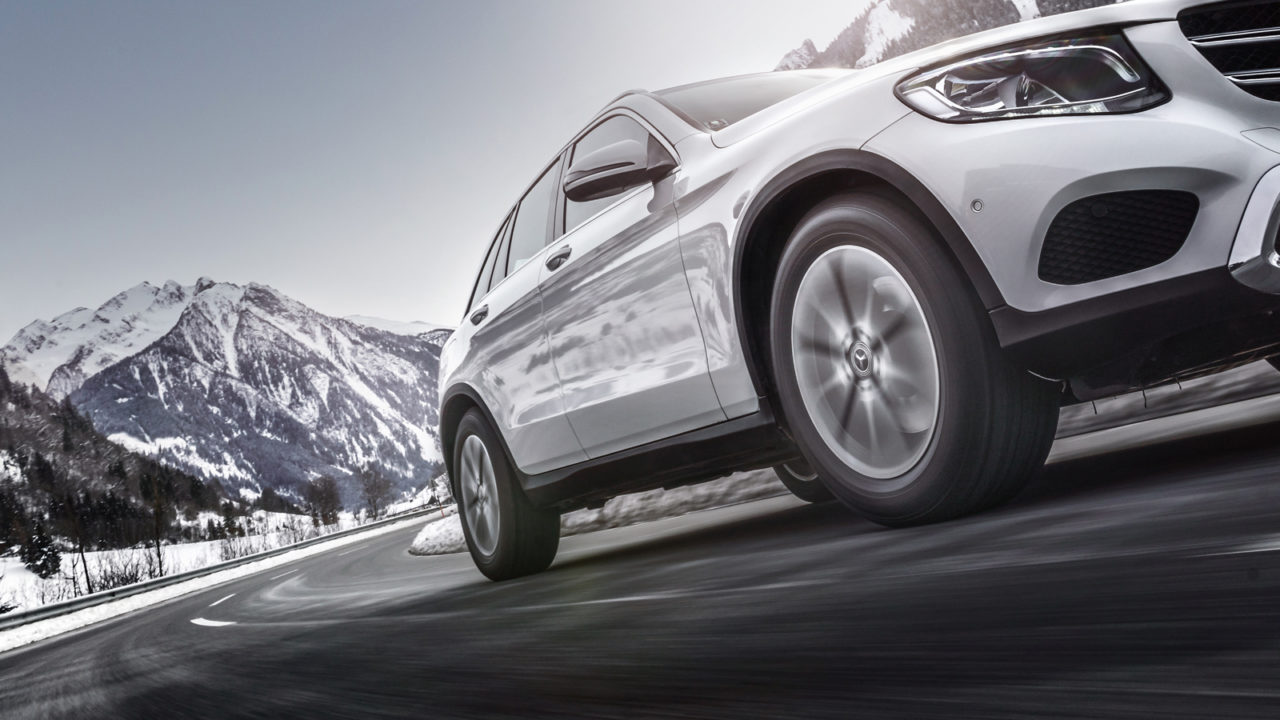Keep I-70 Moving, Choose Safe Tires
The rising sun crests above the Colorado horizon, casting a gleaming orange glare in the rearview mirror as you climb I-70 in the foothills of the Rockies.
At the end of your journey lies an epic weekend of skiing with loved ones. But just beyond the Front Range lies…well, who knows?
The beauty of the Rocky Mountain landscape is matched only by its brutality. For many, its ruggedness is at the heart of its allure. Rising from the core of Colorado earth, the Rockies reflexively repel anyone who does not respect them.
When it comes to weather in the Centennial State, change is the only constant. That means being prepared for every possibility, including wild temperature fluctuations and unexpected winter precipitation.
No savvy traveler would leave the snow gear at home when entering the Rockies this time of year. But many modern-day explorers are traversing the peaks and valleys completely unaware that their tires are wholly inadequate for the adventure before them.
That’s because those tires were built for winter in Texas, not Colorado.

In most areas of the country, all-season tires aren’t actually built for driving in all seasons. That’s a problem, since it’s what most people drive.
The issue dates back to a naming blunder made several decades ago that has created massive misperception among drivers. All-season tires are fine in rain and sun, but when temps drop below 45 degrees, they harden and become less responsive to the road. Add snow, ice and incline into the picture and they’re a disaster in the making.
For years, the only alternative was switching to winter tires during the colder months. This remains the safest option when temperatures drop each year.
But for drivers who won’t want to change their tires twice per year, tire manufacturers are answering the call with a compromise solution: all-weather tires that are engineered to thrive in snow and cold weather, but hearty enough to last all year. Drivers with all-weather tires can forget the forecast and keep their minds on the adventure that lies ahead.

“Unfortunately, the ‘all-season’ label is a misnomer in many areas of North America,” says Steve Bourassa, Nokian Tyres’ director of products and pricing. “While all-season tires don’t adequately protect drivers on snowy, icy roads, all-weather products are well-suited for areas with unpredictable winter weather.”
Nokian Tyres invented the all-weather tire in its Finnish homeland, but the tire might as well have been personally designed for Coloradoans. The product is built for areas with ever-changing winter conditions, such as a sun-splashed valley nestled against frozen, foreboding mountains.

The key: The tires have an asymmetrical tread design that rolls – safely – with whatever punches the road conditions throw at them. One side looks like a pure winter tire, with jagged grooves crafted to carve through snow. The other is more reminiscent of an all-season tire, providing optimal performance in rain and heat.
How do you spot an all-weather tire without analyzing the tread pattern? Look for a three-peak mountain snowflake on the sidewall. Also known as the severe service emblem, the symbol also indicates the tires are certified to handle wintry roads.

Importantly, all-weather tires comply with Colorado’s recently enhanced winter traction law, which requires that vehicles with two-wheel drive be equipped with winter-approved tires.
Nokian Tyres tests its all-weather products at a place it calls White Hell – a windswept, snow-covered moonscape north of the Arctic Circle. The premium tire manufacturer lends its Nordic expertise and sustainability-driven Scandinavian sensibilities into every tire it crafts, tailoring its tires to meet the demands of the most extreme roads on the planet.
As the mountains beckon this winter, it’s vital to answer the call of adventure with a set of sturdy, winter-tested tires. Safety forms the foundation of exploration. And it’s time to begin your beautiful journey and start exploring.
To make sure you’re equipped for your Rocky Mountain journey, visit NokianTires.com/Weather.


